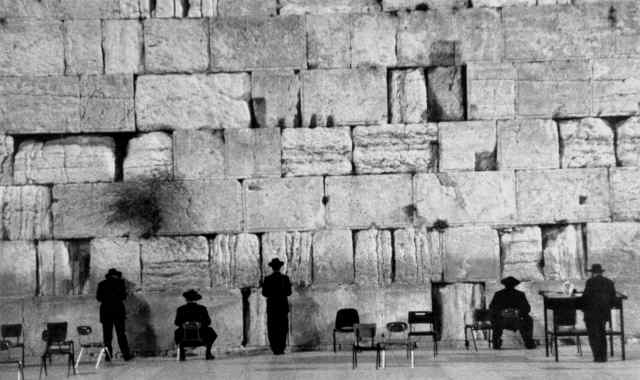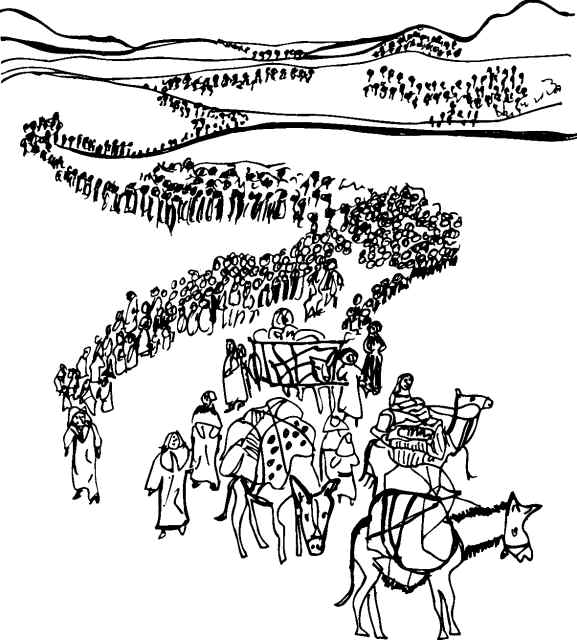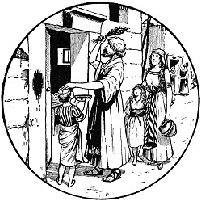  Should a Christian Celebrate Passover? |
Why ask? Everyone knows that Passover is a Jewish holiday—perhaps the defining Jewish holiday.
On the first Passover, the God of Abraham, Isaac, and Jacob suddenly snatched their descendants from slavery in ancient Egypt and transformed them overnight into an infant nation. In an instant, that nation Israel took center stage in world history.
Israel’s Passover deliverance was so breathtaking that even Spielberg’s special effects in “The Prince of Egypt” do it scant justice. Passover is one of history’s greatest stories!
Jacob and his sons—seventy souls in all—had arrived in Egypt 430 years earlier. They grew so alarmingly numerous as to prompt a hostile new Pharaoh to subjugate the Jews, forcing them to supply the brawn for Egypt’s monumental building projects. Scripture records God’s response:
“I have surely seen the oppression of My people who are in Egypt, and have heard their cry because of their taskmasters, for I know their sorrows. So I have come down to deliver them out of the hand of the Egyptians.” Exodus 3:7,8a.
 What God did then to break Pharaoh’s hardened refusal to let Israel go is well known. When the showdown ended, Israel marched out, all at once, on a single day. But before that—to spare them from the final plague of death that touched every unprotected family in Egypt—God instructed his people to do something unique. This was the “Passover.”
What God did then to break Pharaoh’s hardened refusal to let Israel go is well known. When the showdown ended, Israel marched out, all at once, on a single day. But before that—to spare them from the final plague of death that touched every unprotected family in Egypt—God instructed his people to do something unique. This was the “Passover.”
Each family was to kill a male lamb for their last meal in Egypt. Before preparing it, they were to put the slain animal’s blood on the top and sides of the doorways of their homes. While God sent death into homes throughout Egypt that night, he told the Israelites: “When I see the blood, I will pass over you.” This is why the day is called “Passover.”
The whole world knows of their amazing exodus from Egypt: their escape through (not around!) the parted Red Sea, and the destruction of the Egyptian army who pursued madly to recapture them.
Passover is a Jewish holiday; the rest of the world holds no claim to it. All that God did on this day, He did for Israel.
So why should a Christian celebrate Passover?
First, is it not simply right to stand in awe that God should be moved by the oppression of any people, and that He would display to the world such compassion and power on behalf of Abraham’s descendants? To know He acted that way for anyone is to kindle great hope in us all!
 But Christians have other profound reasons to study Passover and its reflection in the life and sacrificial death of Jesus, the Jewish Messiah and the Savior of (now predominantly Gentile) Christians. (It is a central fact, the first thousands of Christians were all Jewish. The Bible records that it took a revelation from heaven for the early believers to conclude that a Gentile could belong to Jesus, too!)
But Christians have other profound reasons to study Passover and its reflection in the life and sacrificial death of Jesus, the Jewish Messiah and the Savior of (now predominantly Gentile) Christians. (It is a central fact, the first thousands of Christians were all Jewish. The Bible records that it took a revelation from heaven for the early believers to conclude that a Gentile could belong to Jesus, too!)
For a Christian, Passover powerfully foreshadows the historic sacrifice of Jesus the Messiah and a believer’s personal experience of salvation through Him. The Christian sees the blood of the lamb sprinkled on the doorway of a Jewish home as a preview of the blood of Messiah poured out for him. That blood applied to his person delivers him from death—the consequence of his deeply-ingrained sin.
In fact, Jesus’ Last Supper with His disciples was a Passover seder. He declared himself there to be the sacrifice of which Passover speaks. While serving the unleavened bread, He said, “This is my body,” and in passing the wine to His friends He said, “This is the cup of the new covenant in my blood”—not that of a lamb, which surely cannot remove the guilt of human sin.
A repentant Christian can recognize in his own sinful heart a parallel to Pharaoh: his hard heart had refused to acknowledge and serve God just as Pharaoh refused to let Israel go. He remembers acutely the hard labor of his past slavery to sin. And he knows poignantly that only the atoning death of God’s Lamb and the supernatural, liberating work of God had the power to make sin let him go, and to give him a new life set apart for God.
“The LORD said to Moses, ‘Consecrate to me every firstborn male. The first offspring of every womb among the Israelites belongs to me, whether man or animal.’” (Exodus 13) These are the firstborn sons God spared in the Passover, when He slew the firstborn of Egypt. Those the Lord spared were to be dedicated to Him. It is reasonable for anyone who knows God has spared and saved him to recognize a special obligation in return.
To our modern, urban, and academic sensibilities, the central acts of the Passover may seem primitive and even deeply distasteful. The slaughter of an innocent creature, the painting of its blood on one’s doorway—this will offend almost anyone! But Passover’s blood and the stark severity of the plagues God inflicted on Egypt—especially the final plague of death—boldly underscore a profoundly unpalatable thought for present society. What we call “religion,” the things that one believes about God, the supernatural, right and wrong, good and evil—and how one consequently lives—is declared a matter literally of life and death, of slavery and freedom. That the blood of an innocent sacrifice is the price of another’s freedom ought to evoke sober thought.
Passover reveals a God of immediate action, ready now to save those who appeal to Him. Moses said: “This is how you are to eat [the Passover]: with your cloak tucked into your belt, your sandals on your feet and your staff in your hand. Eat it in haste.” God wanted people to be in a hurry to get free! Passover and the departure from Egypt were only hours, not months, apart.
This Passover theme of sudden redemption and national rebirth—palatable to other nations or not—is a continuing theme of Biblical and “secular” history. God gave birth to a nation in conflict and controversy. It rarely has known a different reality. In 1948, following an absence of nearly two millennia, Israel was reborn in conflict and remains locked in controversy today.
Christians who believe that “the Church” has somehow replaced Israel as the object of the Biblical promises addressed to Israel have sadly and seriously misread Scripture. Those who may imagine that Israel’s time is past will do well to read Romans 11, where Paul asks: “Did God reject His people? By no means! I am an Israelite myself, a descendant of Abraham, from the tribe of Benjamin. God did not reject His people, whom He foreknew. . . .
“I am talking to you Gentiles. . . . Do not be arrogant . . . .” In adopting Israel as His own nation, God made a permanent commitment. He has sworn never to break it.
It is not presumptuous to ask that every Christian make a commitment to solidarity in prayer and action with Jews as a uniquely chosen people whom God loves, and to Israel as their promised land. A Christian should never require agreement with the Christian understanding of Scripture as a condition of that support. Nor, on the other hand, is a Christian obliged to endorse every act or policy of the state of Israel or of a Jewish body. Nevertheless, Christian support should be expressed with greater vigor whenever Jews and Israel come under fire.
Bible prophecy points to both Israel’s continued centrality and a travail of conflict until God’s promised Messiah comes to rule the earth—the whole of it—from Jerusalem. And yes, it will be a Jewish Jerusalem. So, to understand and to celebrate Passover is to connect with the heart of history!
Why should a Christian—or anyone, for that matter—not celebrate Passover?
Jaan E. Vaino, Columbia U.
© 2001, The Yale Standard Committee

